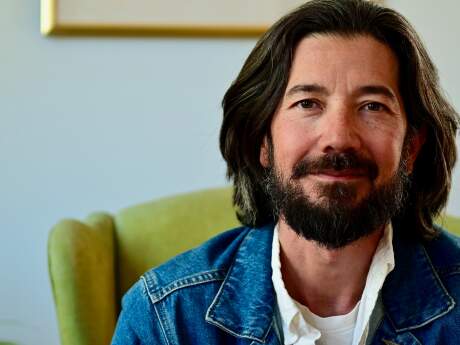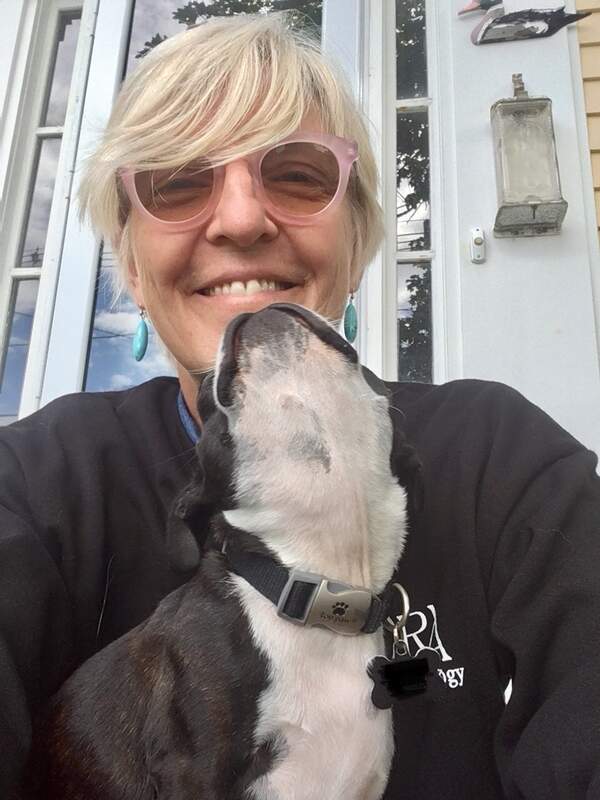Stopping By
Stopping by with Ada Limón

Ada Limón is the author of six books of poetry including The Carrying, which won the National Book Critics Circle Award for Poetry. Her most recent book of poetry, The Hurting Kind, was shortlisted for the Griffin Poetry Prize. She is the 24th Poet Laureate of The United States and the recipient of a MacArthur Fellowship. As the Poet Laureate, her signature project is called You Are Here and focuses on how poetry can help connect us to the natural world.
What is the last thing you listened to that moved you?
I have been listening to this new album by Malena Cadiz called Hellbent & Moonbound. The title is actually a small homage to a line of mine in Bright Dead Things. Malena and I, we’ve known each other since we were in our early twenties in Seattle. I had no idea she’d become such a brilliant songwriter and performing artist. The album feels like a gift to me right now. I’ve had it on repeat since she sent it. There’s something dreamy and pulsating in her voice that allows for both a grief and an ease. Every time I put it on, I feel a little missing piece of joy come back. Joy feels pretty hard-won these days.
What is a poem or book that changed or greatly influenced your life?
There was a children’s book called Flying Dimitri written and illustrated by Blair Drawson. I remember reading it as a child and staring at the pictures. At one point, Dimitri is flying over a moonlit ocean and stops to rest on the back of a whale. He’s still in his pajamas, and the water is glowing around him. That book, well, it was the first time I thought about the dreamworld and the world of the imagination as real places, as places you might be able to explain and describe to someone else. Before then, I thought the imagination was only inside the mind, the body. I had no idea you could offer your imagination up to another person. That realization changed how I thought about language and art and their possibilities.
What is your first memory of poetry?
I think it must have been Shel Silverstein’s books, but I also remember reading Edgar Allan Poe’s “Annabel Lee” and thinking it was the best thing I’d ever read. I didn’t understand it until the teacher read it out loud. I loved the structure of it, the rhyming, and then the way it felt almost as if the engine of sound kept thrusting it forward. In fact, that poem still gets stuck in my head from time to time, and I can’t get the rhythm out of my mind.
What do you see as the role of art in public life at this moment in time?
I think that art has many different roles in public life. But if there is one thing I keep coming back to, I believe that art, and poetry in particular, can make you feel something, anything. It’s not always a soothing feeling, most times it’s actually more of a disruption, a piercing of the thick armor we must wear to move through life. But we need that disruption, that reminder of our humanity, of our desires, rage, and our tenderness.
What do you want people to take away from your work?
It’s hard for me to know what anyone will experience when they read my poems. I know that I feel honored that anyone reads them at all. Perhaps a reader might feel less alone or more in tune with whatever is happening around them? Or maybe their mind will wander into a whole new beautiful place that has nothing to do with my poem, but even that would delight me because it would mean my poem ignited a memory or the imagination. I hope my poems can offer some breath, a softening of the mind’s tight grip.
Are you working on anything right now that you can tell us about?
As the current United States Poet Laureate I am launching a signature project called “You Are Here.” There are two different elements of it: The first is called “You Are Here: Poetry in Parks,” which is a collaboration with the National Parks Service. We will reveal seven poems in the different regions of the national parks. The second element is an anthology of contemporary nature poems called You Are Here: Poetry in the National World, coming out in April from Milkweed Editions in association with the Library of Congress.
In addition to this signature project, I’ve written a poem for NASA’s spacecraft Europa Clipper, which will go to the second moon of Jupiter this fall. A children’s book of that poem is to be illustrated by the wonderful artist Peter Sís and released by Norton.
Beyond that, I am always writing poems. Slowly and clumsily, poems are coming, and I’m always grateful for their arrival.


